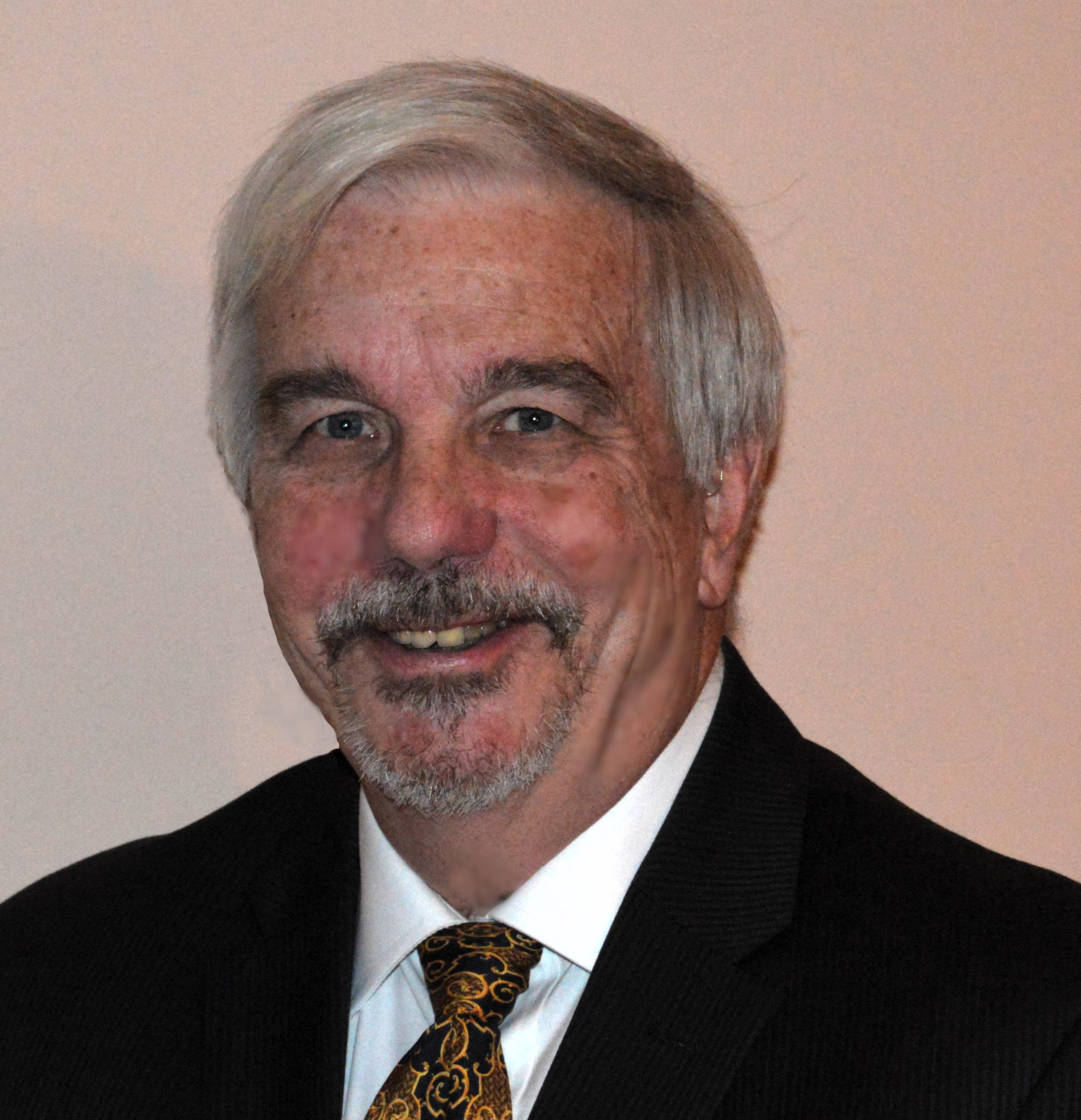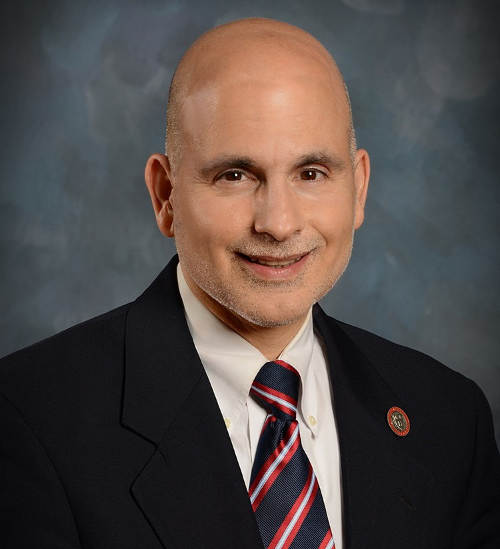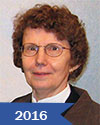Not a member? Click below to become an ISPOR member
Award Background
The ISPOR Avedis Donabedian Outcomes Research Lifetime Achievement Award recognizes an individual's outstanding, life-long achievement in the area of improving health outcomes. The ISPOR Avedis Donabedian Outcomes Research Lifetime Achievement Award is international in scope and stature.
The award was established in honor of the late Avedis Donabedian, MD, MPH who has been called the "father of outcomes research." Dr Donabedian was a renowned faculty member of the University of Michigan School of Public Health, multiple award-winner, author of 8 books and more than 50 peer-reviewed articles, and presenter of countless lectures on the subject of outcomes research. He dedicated his life to improving the quality of healthcare and healthcare systems; directing such research towards health outcomes as the measure of quality.
Criteria:
- Open to any person who through his or her life's endeavors has demonstrated a significant and lasting contribution towards better health outcomes in a population or subpopulation.
- Since this is a lifetime achievement award, consideration will also be given to the nominee’s career stage.
- Targeted towards demonstrated value delivered in health outcomes, rather than purely academic achievement.
- Academicians, industry professionals, economists, researchers and others who meet these criteria are eligible, including ISPOR members.
- Self-nominations are discouraged.
- Deceased persons are not eligible for the award. However, should the recipient die prior to receiving the award, it may be presented posthumously.
- A candidate may only be nominated for 1 major ISPOR award in a year.
Nomination Process:
Nominations may be made by any ISPOR member. Members may nominate more than one person; however a completed letter of recommendation must accompany each nomination. Nominators are responsible for ensuring that all necessary documentation is forwarded with their submission.
Nominations for this Award require a letter of support for the nominee and a current edition of the nominee's CV.
Nature of the Award:
The recipient will receive the award at the Awards Ceremony at the ISPOR Conference. The recipient will receive the following:
- A complimentary registration to the ISPOR Conference
- Travel and Accommodation expenses to the ISPOR Conference, per the ISPOR Travel Reimbursement Policy
Avedis Donabedian Outcomes Research Lifetime Achievement Award Recipients

Emeritus Director and Visiting Senior Research Fellow of the Office of Health Economics; London, UK
2025 - Adrian Towse, MA (Hons), MPhil
Adrian Towse is Emeritus Director and Senior Research Fellow of the Office of Health Economics (OHE). Adrian served as its leader for 25 years, building the profile, output and quality of the organization which is now a registered not-for-profit charity with Independent Research Organization status and a consulting subsidiary. OHE is internationally recognized as one of the top health policy research groups in the world.
Adrian is also a Visiting Fellow at the influential global think-tank the Center for Global Development and served until recently as a Visiting Professor in Practice at the London School of Economics. He has previously been a Visiting Professor at the University of York, and a Senior Visiting Fellow at the Health Economics Research Centre, University of Oxford. For ten years, he served as a Non-Executive Director of the Oxford University Hospitals NHS Trust, one of the UK’s largest hospital groups.
Adrian was President of ISPOR for the 2014-15 term, managing, with Past-President Dan Malone, the transition from Founding Director Marilyn Dix Smith to her successor Nancy Berg. He remained post-presidency for several years as a special advisor to the ISPOR Board, chairing the Governance Committee during the formalization of ISPOR’s oversight of its Chapters, and the reorganization of the Committee structure. He currently serves on ISPOR’s Health Science Policy Council.
He has been a regular presenter for more than two decades at meetings of ISPOR in North America and Europe, as well as at HTAi and iHEA meetings and has published over 200 journal articles and peer-reviewed reports.
His research has covered major areas of HEOR including:
- Differential pricing based on value to increase patient access, demonstrating it was neither efficient nor ethical for low-income populations to pay the same prices for pharmaceuticals as high-income populations, applying this conceptual approach to the need for indication-based pricing for the same drug, and to use of monotherapy in combination.
- He has written extensively about the need to recognise broader elements of value but within a framework that recognises opportunity cost and avoids double-counting and was a member of the ISPOR Special Task Force on US Value Assessment Frameworks.
bda678df-cd6e-45e4-8fe4-6361a6793919.jpg?sfvrsn=cefa0c3e_1)
Professor of Practice, Sciences, and Health Outcomes Research and Executive Director of The PATIENTS Program, University of Maryland School of Pharmacy, Baltimore, MD, USA
2024 - C. Daniel Mullins, PhD
C. Daniel Mullins is a Professor at the University of Maryland School of Pharmacy. He is Founder and Executive Director of the University of Maryland PATient-centered Involvement in Evaluating effectiveNess of TreatmentS (PATIENTS) Program, a community-academic partnership for patient-driven research. Dr. Mullins has received approximately $25 million in funding as a Principal Investigator from AHRQ, FDA, NCI, NHLBI, NIA, NIMHD, the Patient-Centered Outcomes Research Institute (PCORI) and various patient advocacy organizations and pharmaceutical companies.
At the University of Maryland Baltimore (UMB), he received the Dr. Patricia Sokolove Outstanding Mentor Award and the Dr. Martin Luther King Jr. Faculty Diversity Award. He was named Researcher of the Year at UMB and was awarded a University System of Maryland Wilson H. Elkins Professorship. At ISPOR, he has served as Editor-in-Chief of Value in Health since 2010 and received the Marilyn Dix Smith Leadership Award in 2017.

University Professor and Provost Emeritus, University of Rochester, Pittsford, NY, USA
2023 - Charles Phelps, PhD

Professor Emeritus, CHOICE Institute, University of Washington, Seattle, WA, USA
2022 - Louis P Garrison, Jr, PhD
Lou Garrison, PhD, is Professor Emeritus in The Comparative Health Outcomes, Policy, and Economics Institute in the School of Pharmacy at the University of Washington, where he joined the faculty in 2004. For the first 13 years of his career, Dr. Garrison worked in non-profit health policy. Following this, he worked as an economist in the pharmaceutical industry for 12 years. From 2002-2004, he was Vice President and Head of Health Economics & Strategic Pricing in Roche Pharmaceuticals, based in Basel, Switzerland.
Dr. Garrison received a BA in Economics from Indiana University, and a PhD in Economics from Stanford University. He has more than 190 publications in peer-reviewed journals. Dr. Garrison was elected as ISPOR President for July 2016-June 2017. He is currently serving as co-chair of ISPOR’s Policy Outlook Committee for the Health Science Policy Council.

Executive Director of Biostatistics, Pfizer Inc, Groton, CT, USA
2021 - Joseph C. Cappelleri, PhD
Joseph C. Cappelleri earned his MS in statistics from the City University of New York (Baruch College), PhD in psychometrics from Cornell University, and MPH in epidemiology from Harvard University. Dr. Cappelleri is an executive director of biostatistics at Pfizer Inc, where he has served for 25 years and earned the Craig A. Saxton Clinical Development Excellence Award. He has served on the adjunct faculties at Brown University, Tufts Medical Center, and the University of Connecticut. The most published author in the history of Pfizer, and among the most prolific in the pharmaceutical industry, he has co-authored approximately 1,200 external presentations and 600 publications on clinical and methodological topics, including regression-discontinuity designs, meta- analysis, and health measurement scales. Dr. Cappelleri is lead author of the book Patient-Reported Outcomes: Measurement, Implementation and Interpretation and has co-authored or co-edited three other books. He is an elected Fellow of the American Statistical Association.

Professor of Health Economics, University of Sheffield, Chief Scientific Officer, Open Health, Sheffield, UK
2020 - Barend (Ben) A. van Hout, PhD
Ben van Hout’s career started 40 years ago when he, as a student assistant, developed a Markov Chain to model the end stage renal disease programme in the Netherlands. After this, he has been sort of lucky that there were no readymade solutions for most problems in outcomes research and he was allowed to help develop methods concerning modelling, addressing uncertainties and quality of life. The solution to capture what happens on the waiting list for heart transplantation was found in discrete event simulation. What is a cost effectiveness ratio without confidence intervals? How does one compare and value gains in quality of life in different disease areas? Why will hepatitis B vaccination never to be cost effective when using equal discount rates? How do we account for unobserved heterogeneity? And how do we address that every health care researcher, correction, every policy maker, gets a decent background in Bayesian statistics?

Consultant, New York, NY, USA
2019 - Marc L. Berger, MD
Marc L. Berger, MD, is a semi-retired, part-time consultant. Until July 2017, he was Vice President, Real World Data and Analytics at Pfizer, Inc. Marc has held senior-level positions in industry, including Executive Vice President and Senior Scientist at OptumInsight; Vice President, Global Health Outcomes at Eli Lilly and Company; and Vice President, Outcomes Research and Management at Merck & Co., Inc. He currently serves as advisor to several companies, including SHYFT Analytics. Additionally, Marc contributes to ongoing efforts by ISPOR and the Duke-Margolis Center for Health Policy to recommend how real-world evidence can be produced to enhance and expand its usefulness for regulatory agencies and other healthcare authorities. Marc has written or cowritten more than 130 peer-reviewed articles, book chapters, and other publications on a range of topics, including health services research, outcomes research, health economics, and health policy.

Professor, Duke School of Medicine
Duke Clinical Research Institute, Duke University
Durham, NC, USA
2018 - F. Reed Johnson, PhD
F. Reed Johnson, PhD, has more than 40 years of academic and research experience in health and environmental economics. He has served on the faculties of universities in the United States, Canada, and Sweden, as Distinguished Fellow at Research Triangle Institute, and currently as Professor in the Departments of Population Health Sciences and Medicine, Duke School of Medicine, as well as appointments in the Center for Health Measurement and the Duke Clinical Research Institute. As a staff member in the US Environmental Protection Agency’s environmental economics research program during the 1980s, Dr. Johnson helped pioneer development of nonmarket valuation techniques. These methods are now widely used in federally mandated regulatory impact studies, for estimating the value of improved health outcomes, and for quantifying patients’ tolerance for treatment-related risks. Dr. Johnson has over 140 publications in books and peer-reviewed journals. His research has been published in numerous medical, health-economics, environmental-economics, and general-economics journals. He has coauthored a book on techniques for using existing environmental and health value estimates for policy analysis. He led the first FDA sponsored study to quantify patients’ willingness to accept benefit-risk tradeoffs for new health technologies. The study was used to inform recent FDA guidance on submitting patient-preference data to support regulatory reviews of medical devices. His current research involves quantifying patients’ willingness to accept side effect risks in return for therapeutic benefits and estimating general time equivalences among health states. He is a founding member of the International Academy of Health Preference Research. He currently serves on the editorial board for The Patient, the Science Advisory Board for the U.S. Environmental Protection Agency, and the ISPOR Health Science Policy Council.

Institute of Health Sciences, University of Leeds
2017 - Paul Kind
Paul Kind, is professor of Health Outcome Measurement at the University of Leeds, UK, and the lead international scientist at the Centre for Health Economics, Management, and Policy at the National Research University Higher School of Economics, St Petersburg, Russia. For more than 40 years, Paul has worked on research regarding the valuation of health benefits for use in clinical and economic evaluation. In addition to his academic work, Paul has acted as a consultant to government and international agencies, and has provided technical support to leading pharmaceutical companies. A founder member of the EuroQoL Group, Paul has only recently stepped down from its leadership team, having served variously as its president and chair of its Scientific Executive. Paul first presented at an ISPOR meeting in 1997 and went on to lead its Quality of Life SIG before subsequently serving as an elected member on the Board of Directors. Collaboration with research colleagues in Latin America and Russia provides Paul with a continuing stream of new projects and challenges. He is completing a long-standing assignment documenting the history of the value and valuation of health.

Co-founder and scientific director of The On-Line Guide to Quality-of-Life Assessment (OLGA)
2016 - Pennifer Erickson, PhD
Dr. Erickson, serves as co-founder and scientific director of The On-Line Guide to Quality-of-Life Assessment (OLGA), an organization that identifies health-related quality-of-life assessments used in clinical practice, clinical trials, and evaluation studies. Before starting OLGA, she developed the Clearinghouse on Health Indexes and its principal output, a quarterly annotated bibliography at the National Center for Health Statistics (NCHS).
While at NCHS, Dr. Erickson led the development of the Health and Activity Limitation Index (HALex) and the Healthy People 2000 Years of Healthy Life, both of which were used to monitor the health of the US population from 1990 through 2000 as part of the US Public Health Service's Healthy People initiative.
In addition, she was one of the first to map data collected using health status questionnaires into utility-based health-related quality-of-life scores. This approach was used to create analogs of the quality of well-being and the health utility index using data collected in national health surveys.
After leaving NCHS, Dr. Erickson joined the faculty at Penn State University's Hershey Medical College.

Emeritus Professor of Economics, University of York, Heslington, York, UK
2015 - Professor Anthony John (Tony) Culyer, CBE, BA, Hon DEcon, Hon FRCP, FRSA, FMedSci
Tony Culyer is Emeritus Professor of economics at York (England); Chair, NICE International Advisory Group, London, England; Senior Fellow at the Institute of Health Policy, Management and Evaluation, University of Toronto; Adjunct Scientist, Institute for Work and Health, Toronto; and Distinguished Visiting Scholar, University of the Witwatersrand, South Africa.
He was the founding Organiser of the Health Economists' Study Group. For 33 years he was the founding co-editor, with Joe Newhouse, of Journal of Health Economics. He was founding Vice Chair of the National Institute for Health and Care Excellence (NICE). For many years he was chair of the Office of Health Economics in London. He is Editor-in-Chief of the on-line Encyclopaedia of Health Economics. He was responsible for the 1994 report that led to the redesign of the NHS's R&D system. For many years he was chair of the Department of Economics & Related Studies at York and, for six of them, was also deputy vice-chancellor.
He has published widely, mostly in health economics. The third edition of his The Dictionary of Health Economics(Edward Elgar) came out in 2014. A collection of his non-technical essays called The Humble Economist is available on-line free of charge.

Professor Emeritus of Health Economics, Stockholm School of Economics (SSE), Sweden
2014 - Bengt Jönsson, PhD
Bengt Jönsson, PhD, is Professor Emeritus of Health Economics at the Stockholm School of Economics (SSE), Sweden. Before joining the SSE in 1990, he was professor at Linköping University, Department of Health and Society, 1982-1990. He was director of the Swedish Institute for Health Economics (IHE) in Lund from 1979 to 1982. He is now chair of IHE scientific advisory board. He is also a member of the European Academy of Cancer Sciences, and vice chair of the EU Expert Panel on effective ways of Investing in health. Professor Jönsson has been a member of the Karolinska University Hospital Board, of the National Social Insurance Board in Sweden, and of SBU (The Swedish Council on Technology Assessment in Health Care), Scientific Advisory Board 1988-2004. Professor Jönsson is a member of the editorial boards of several journals, including the Journal of Cancer Policy, European Journal of Health Economics, and International Journal of Technology Assessment in Health Care. He is past president of Swedish Health Economics Association (SHEA), and the International Health Economists Association (iHEA).
2013
Josephine Mauskopf, PhD, MHA
Vice President, Health Economics at RTI‑HS
2012
Donald Patrick, PhD, MSPH
Director, University of Washington, Seattle, WA, USA
2011
Sir Michael Rawlins, MD, FMedSci
Chairman, National Institute of Health & Clinical Excellence (NICE), London, UK
2010
Martin J. Buxton
Professor of Health Economics and Director of the Health Economics Research Group
2009
Milton C. Weinstein, Ph.D.
Professor Health Policy & Management
Harvard School of Public Health, Boston, MA
2008
Bryan R. Luce, PhD, MBA
Senior Vice President Science Policy for United BioSource Corporation
2007
David Eddy MS, PhD
Archimedes, Inc.
2006
George W. Torrance, PhD
Professor Emeritus at McMaster University, Canada
Principal Consultant for i3 Innovus
2005
Kathleen N. Lohr, PhD
2004
Michael F. Drummond, PhD
Professor of Economics and Director of the Centre for Health Economics
University of York, UK
2002
John E. Ware, Jr. PhD
Chief Executive Officer, Chief Science Officer and Chairman of the Board
QualityMetric Incorporated
